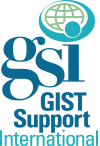Christopher L. Corless, Jonathan A. Fletcher, Michael C. Heinrich
From the Oregon Health & Science University Cancer Institute, Department of Pathology, and Division of Hematology and Oncology, Oregon Health & Science University and Veterans Affairs Medical Center, Portland, OR; and Department of Pathology, Brigham & Women’s Hospital, Boston, MA </font />
Address reprint requests to Michael Heinrich, MD, R&D-19 3710 SW US Veterans Hospital Rd, Portland, OR 97201; e-mail: heinrich@ohsu.edu
Once a poorly defined pathologic oddity, in recent years, gastrointestinalstromal tumor (GIST) has emerged as a distinct oncogenetic entitythat is now center stage in clinical trials of kinase-targetedtherapies. This review charts the rapid progress that has establishedGIST as a model for understanding the role of oncogenic kinasemutations in human tumorigenesis. Approximately 80% to 85% ofGISTs harbor activating mutations of the KIT tyrosine kinase.In a series of 322 GISTs (including 140 previously publishedcases) studied by the authors in detail, mutations in the KITgene occurred with decreasing frequency in exons 11 (66.1%),9 (13%), 13 (1.2%), and 17 (0.6%).
Full Text at: http://ascopubs.org/doi/abs/10.1200/jco.2004.05.140

